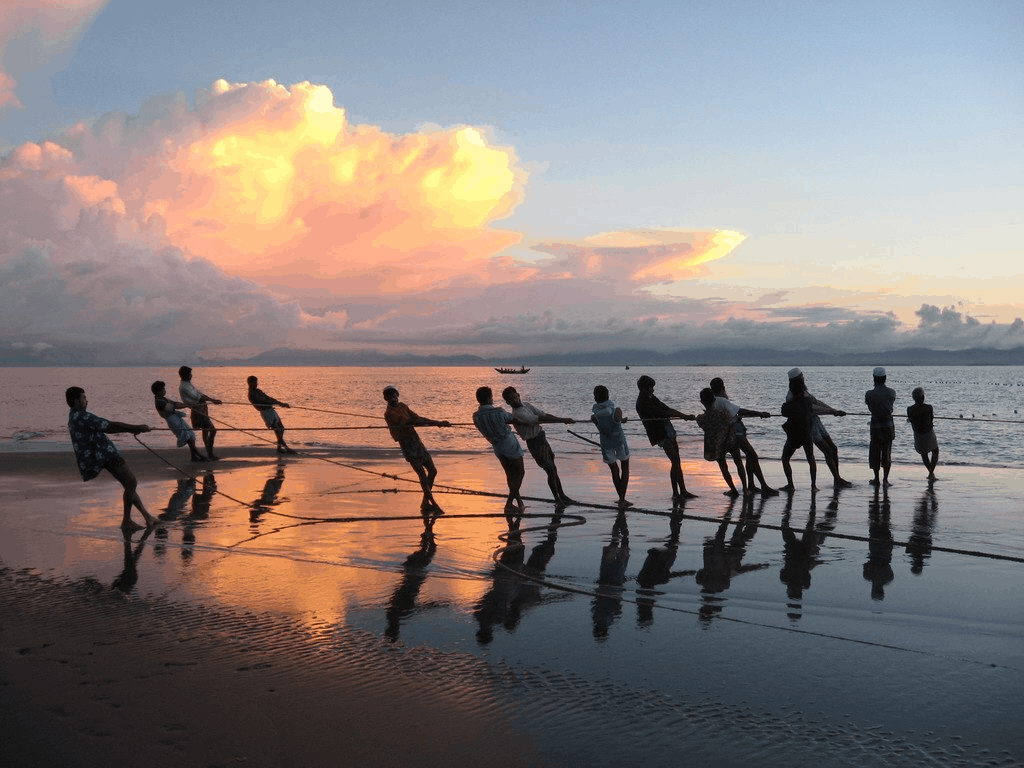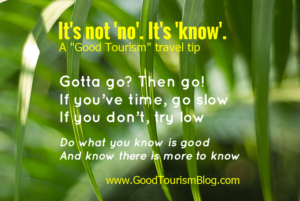Tourism growth is not the enemy: UNWTO boss

As an economic activity, travel and tourism is relatively young; yet it has become today, a sector central to our societies and to our way of life. Today, tourism generates 10% of the world’s GDP, 1 in every 10 jobs and 30% of world trade in services. It is key to many countries’ balance of payments and livelihoods.
Recognising how tourism can help us address many of our common challenges, the United Nations declared 2017 as the International Year of Sustainable Tourism for Development, reminding us that with growth comes responsibility.
A sustainable tourism sector is one that promotes environmental preservation and protection of tangible and intangible cultural heritage, but more importantly, it promotes engagement, commitment and respect for local communities. Managing the growing number of visitors to many popular areas of our planet, including cities, is crucial for both hosts and visitors, both international and domestic. In countries such as Spain or France the share of domestic tourists is higher than that of international visitors.
But growth is not the enemy. Growing numbers are not the enemy. Growth is the eternal story of mankind. Tourism growth can and should lead to economic prosperity, jobs and resources to fund environmental protection and cultural preservation, as well as community development and progress needs, which would otherwise not be available. It also means that through meeting others we can broaden our horizons, open our minds and our hearts, improve our well-being and be better people; shaping a better world .
Yet ensuring that tourism is an enriching experience for visitors and hosts alike, demands strong, sustainable tourism policies, practices, and the engagement of national, as well as local governments and administrations, private sector companies, local communities and tourists themselves.

Pulling together. Sunrise on Saint Martin Island, Bangladesh. By Tahmid Munaz from Dhaka, Bangladesh (CC BY-SA 2.0) via Wikimedia.
The sector needs regulations and clear guidelines, but not ones that would curb growth. Rather, regulations that ensure its sustainable management and sustainable growth actions that help such as:
- Diversify visitor activities; both in type and location [such as rural tourism];
- Effective and integrated mechanisms and policies to manage visitors at sites [such as in Antarctica, an extreme example];
- Policies to reduce seasonality;
- Incentives for the private sector to invest in new areas and new products;
- Incentives and policies to reduce energy and water consumption and address other community needs, shortcomings and deficits [or highlight and celebrate those who simply get on with it].
There have been several case studies of destinations struggling to maintain a fair and inclusive sector while managing exponential tourism growth – Venice and Barcelona being prominent recent examples. It should be emphasised, in this regard, that, whilst local communities must be consulted and fully engaged in tourism planning, ‘tourism-phobia’ on the part of citizens is largely a result of the failure to manage the growth in a sustainable manner. The wrongdoing of illegal companies, damage to marine and terrestrial ecosystems or the misbehaviour of a small number of travellers do not represent a dearth of tourism ethics by the sector as a whole.
It’s the failure of management not of the sector as such.
All the efforts of enterprise, government, civil society and travellers in the last decades to shape a more responsible and committed global tourism sector should not be in vain. We can and should be able to continue capitalising on the sector and its benefits in terms of job creation, economic development and cultural interaction, while curbing its negative effects and impacts.
Every growing human activity has a downside to it. The answer should never be to halt the activity, and lose all it’s clear benefits, but rather to live up to the challenge and manage it correctly. This is the real challenge. We should ensure that our conviction to improve the sector is today stronger than ever. Otherwise, the value of the sector will naturally be lost and contested.
Together we can continue building a sustainable, equitable and well-managed tourism sector that supports many livelihoods around the world and can enrich us every time we cross borders and exchange cultural experiences.
Let us remember the motto of the campaign of the International Year of Sustainable Tourism for Development: Travel, Enjoy, and Respect.
Travel, Enjoy, Respect
On August 22, the World Tourism Organization (UNWTO) announced that it would be launching a consumer-oriented campaign aimed at raising awareness of the value and contribution that sustainable tourism and respectful, responsible travel can make towards development. The ‘Travel.Enjoy.Respect’ campaign wants to engage travellers to make the tourism sector a catalyst for positive change.
Per the press release:
The main message of the campaign is summarised by the UNWTO Secretary-General, Taleb Rifai: “Whenever you travel, wherever you travel, remember to: respect nature, respect culture, and respect your host. You can be the change you want to see in the world. You can be an ambassador for a better future. TRAVEL, ENJOY AND RESPECT.”
The campaign, which will run in various languages and outlets around the world, includes a manual of ‘Tips for a Responsible Traveller’, developed by the World Committee on Tourism Ethics in line with the UNWTO Global Code of Ethics for Tourism. The manual provides travellers with a set of recommendations to help them make responsible choices when travelling and have a positive impact on the destinations they visit.
“Today more than ever, ensuring that tourism is an enriching experience for visitors and hosts alike demands strong, sustainable tourism policies and practices and the engagement of national, as well as local, governments and administrations, private sector companies, local communities and tourists themselves,” added Mr Rifai.
The message will reach consumers through campaign supporters including among others CNN International, the Government of Andorra, the Madrid City Council, Iberia, the Spanish National Railways System (Renfe), Minube, PR MEDIACO, Cleverdis and Air Mauritius.
Destinations and companies from around the world are invited to join the campaign and celebrate the International Year of Sustainable Tourism for Development with a commitment from the sector to ‘Travel.Enjoy.Respect’.
Featured image: Taleb Rifai, Secretary-General, UNWTO. By World Travel & Tourism Council (CC BY 2.0) via Wikimedia.
Download

Words of wisdom from ‘Tips for a Responsible Traveller’ (PDF 4MB)
‘Tips for a Responsible Traveller’ (PDF 4MB)
Related posts





